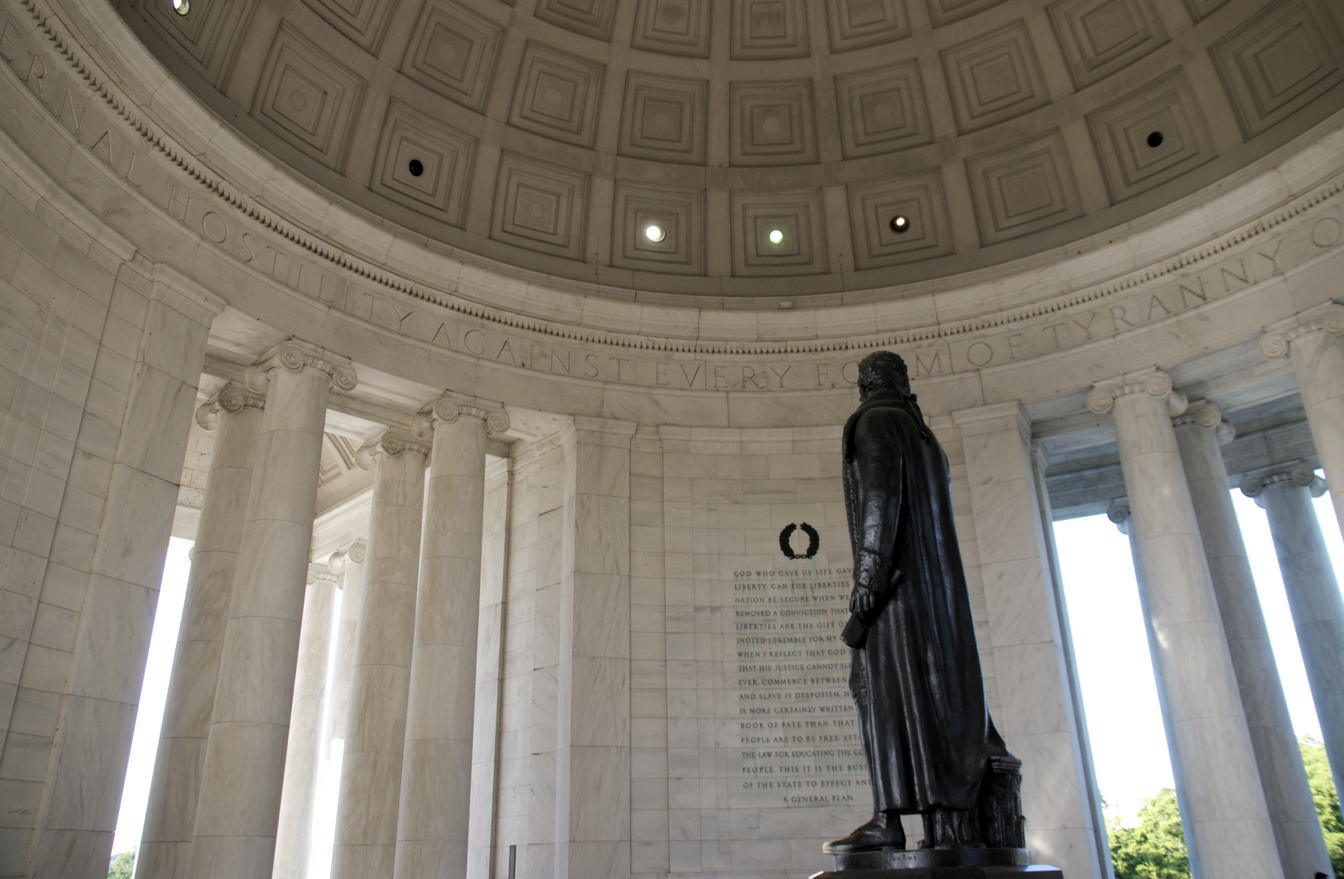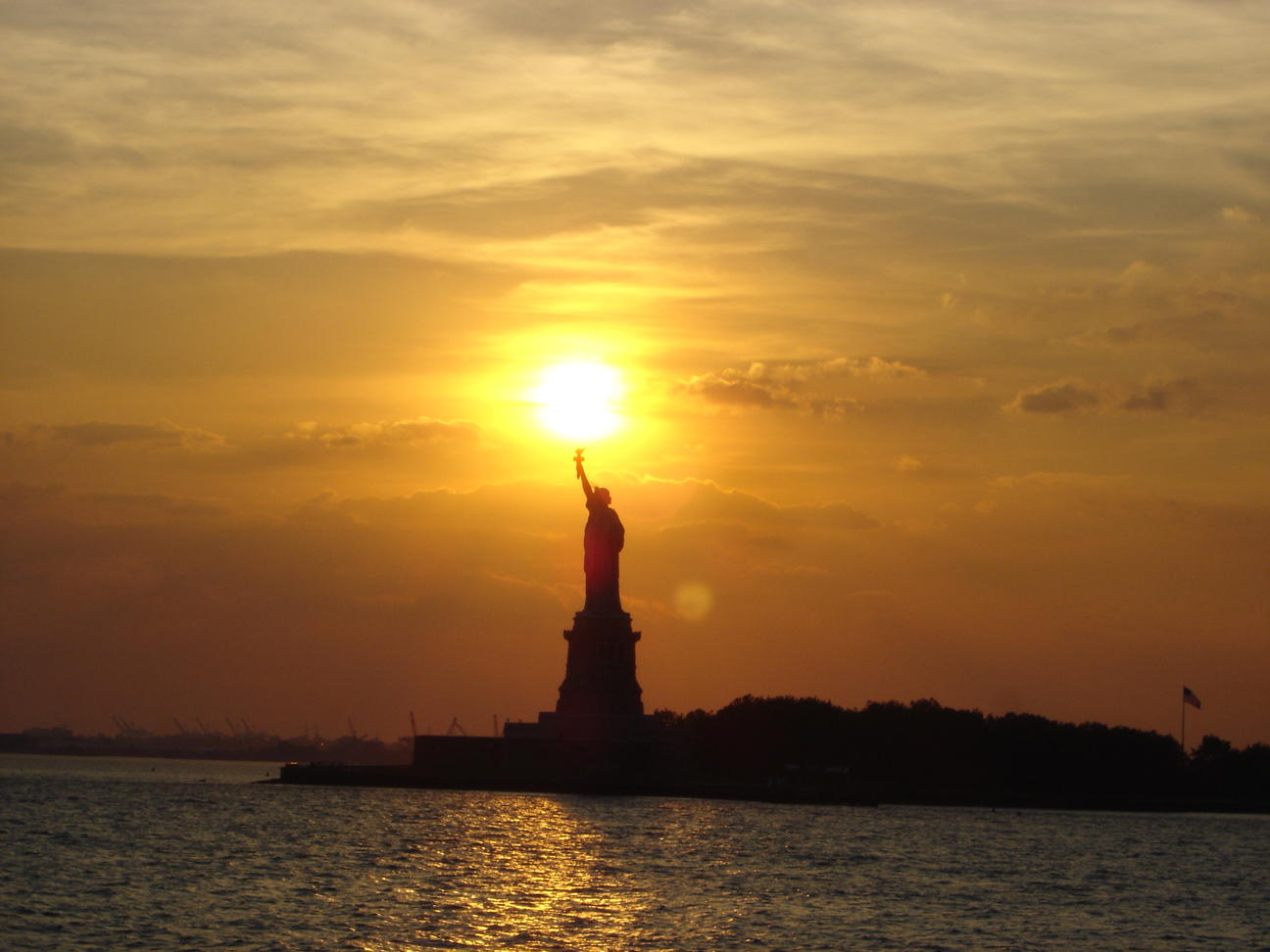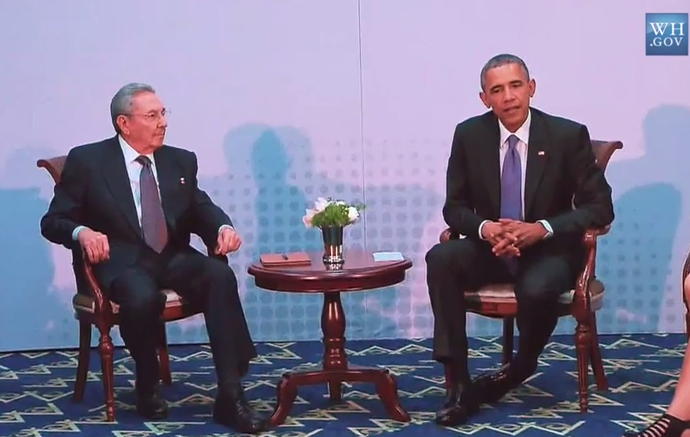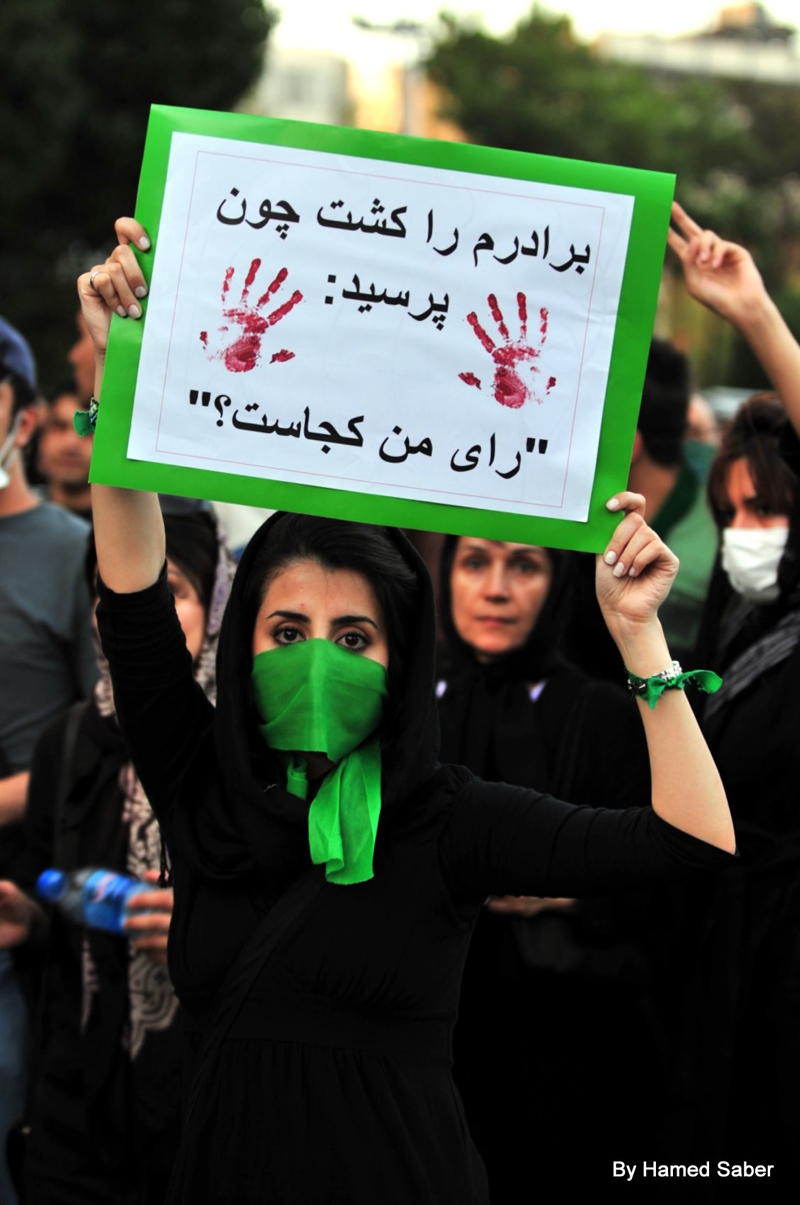Republicans and America must provide an alternative

“I have sworn upon the altar of God eternal hostility against every form of tyranny over the mind of man.”
I’ve often complained that politicians sometimes grow in office to desire compromise solely for the sake of compromise and not to further some underlying policy or principle.
While there are certainly opportunities for compromise in the 2015–2016 congress, there are also things that Republicans should simply vote correctly on and pass to the President’s desk despite the short term hit from a guaranteed veto. During the 2013 shutdown Republicans took a short-term hit for holding up government funds in a futile attempt to delay the ACA. But when the ACA turned out to be an expensive boondoggle a few months later in 2014, it was impossible for the press, having shouted Republican opposition to it only months previously, to claim that the ACA was a bipartisan fiasco.
The same is likely the case with releasing the terrorists at Guantanamo: the president will oppose any bill blocking their release. But if Republicans believe that Guantanamo is protecting the U.S. from terrorist attack by those prisoners, they should send him the doomed bill to maintain Guantanamo anyway. They should pass what is right and not allow the press to tie Democrats’ failures to bipartisanship.
This requires, of course, that Republicans not only have principles but believe in them strongly enough to know that they are right even in the face of failure.
Even more critical is Iran. Republicans must provide a loud alternative to President Obama’s appeasement. And it’s important that their alternative be loud. It isn’t enough to oppose bad policies quietly, as Bush and McCain did when trying to reform Fannie Mae/Freddie Mac before the 2008 housing meltdown. It is very difficult for a politician to say “I told you so” without being condescending; it is necessary that they not have to say “I told you so” because everyone knows—as everyone did after the shutdown over the ACA—what they said.
Providing an alternative is important in all areas of politics and world relations. America itself has been an alternative for the oppressed masses yearning to breathe free since its founding, and it should remain so.
One of the problems with our lack of response to radical Islam’s terrorist acts, such as the administration’s snubbing the Charlie Hebdo memorial, and their—and the mainstream medias— lack of will to even name radical Islam, is that we then do not provide an alternative. When our chief adversary was communism, both Democrats and Republicans could name the evils of it and warn the other side when our policies were mimicking the evils of the enemy. Yes, there were pro-communists within the Democratic party1 but they were not the majority.
Soviet-style totalitarianism was our competition, so to speak, in the world market. We—as Americans, not as parties—tried to provide a different product.
But today, Democrats are so far left, are so enamored of pre-World War II fascist progressivism without even any sense of the history that ties progressivism to fascism, that they do not see Islamic terrorists as enemies. The influential left seems to feel that they share too many interests: the terrorists are men of action2, they also disdain the Christianity of the bitter clingers and Democratic governance by the masses too ignorant to vote their best interests. They also understand the necessity to lie for the cause—President Obama’s semi-new Bulworthism is the al-taqiyya of the left—and apostasy demands punishment both in Islam and among the anointed on the left today.
It may be that, having given up the existence of evil, they are unable to face a villain who operates outside of poverty or hunger and solely as evil. A villain that takes the riches of their land and uses it to promote evil rather than raise themselves up, even to the point of destroying those comforts that do not contribute to their evil.
Whether it is their unspoken similarities or not, the left’s leaders refuse to see the evils of radical islam. They do not see the brutal oppression of women, the brutal torture and killing of gays, the brutal repression of education. They refuse to acknowledge that these are evils, and so they are unable or unwilling to place America on a pedestal in opposition to those evils. They are unwilling to see evil anywhere but home, unwilling to make the comparison between us and them that is required for us to provide a global alternative to them.
They have no evil wind to tack against, as we did during the cold war. This, I think, is why our foreign policy seems to change with the wind.
In response to Essential Revolution: The Return of the Republicans: The crime of the day is when you do it again.
- August 12, 2015: A tested alternative for Iranian nuclear negotiations
-

“On March 21, 2015, Iran’s supreme leader Ali Khamenei backed and shouted the phrase ‘Death to America’ while addressing a public gathering in Iran.” (seysd shahaboddin vajedi, CC BY-SA 4.0)
President Obama claims that his administration’s nuclear deal is the only alternative to war. This is a pretty standard debating tactic of the President’s: its his way or some broken-down highway filled with spike-covered reavers, and there’s nothing in between.
In this case, though, the alternatives are probably not that obvious inside the beltway, because they require thinking long-term and thinking about freedom. The obvious non-politico-friendly alternative is to simply wait until a better deal can be negotiated. We are giving Iran a lot in exchange for this deal. If we aren’t getting much of anything in return—if, in fact, Iran is allowed to get as close to nuclear weapons as it wishes without actually touching them, and is allowed to lie about touching them—then why give up that leverage? It may well be useful later.
But there is a third way, besides war and waiting, that has worked in the past. And that is to tie closer relations and/or lessened sanctions to their creating a more open society.
If we require that Iran free their political prisoners, this will make Iran a safer place for the greater voices it has. If we require that Iran stop cracking down on dissidents—cracking down in the old-school way of killing and maiming them—then Iran will in fact be a safer place for the people willing to speak out.
If we require that Iran allow anyone to leave Iran who wants to, Iran’s stranglehold on its dissidents is nearly completely removed.
If we do those simple things—if we believe in the power of freedom to transform—we may well end up with a repeat of the reasonably bloodless revolution that threw down the Soviet Union, as Iran responds to the now visible voices against its tyranny. But even if we aren’t, Iran will be a better place, with more voices, some of whom will end up in government and be more open to negotiating real nuclear reforms. Without Senator Jackson and President Reagan, Gorbachev would not have been Gorbachev.
- August 5, 2015: We are not free unless we fight for the freedom of others
-

I am coming to the belief that the old cliché that no one is free unless everyone is free has a very special, and true, meaning for the United States.
There is an old theory in psychology that I’m aware of mainly because it was my faculty advisor’s at Cornell. It is that for many of the ways we see ourselves, we observe ourselves from the outside, and make conclusions about ourselves as if we were an outside observer. If we see ourselves doing kind things, then we see ourselves as kind. If we do free work in favor of some political cause, we will assume that we must support that political cause.
Now, he wasn’t saying that we act randomly and decide what we are based on our random acts; many things we do because we are the kind of person who does them. But many things we don’t. We go along with friends or family or coworkers on things that don’t matter to us, but, his theory goes, when we go along we start to believe that’s who we are.
If we never really thought about a vacuum cleaner, and the vacuum cleaner salesman convinces us to let him into our home, perhaps we really were interested in a vacuum cleaner. Maybe we do need a new one.
That is, we are what we do, rather than we do what we are. I think something similar works on the national level, that we see ourselves, as a nation, based on what we do as a nation. This would mean that linking, Sharansky-style, freedom under tyrants to any deals we make with those tyrants, makes us freer too because we see ourselves as a free country, in opposition to the tyranny elsewhere.
If we link beneficial deals with the USSR to their freeing and not harassing dissidents, then we will value more closely our freedoms at home. And if we position ourselves to pragmatically ignore the tyranny in Iran or Cuba in favor of short-term gain, well, we will be more pragmatic at home as well, and our freedom here will suffer.
We are not free unless we understand the power of freedom to transform.
- July 29, 2015: Cuban Cigar Aficionado
-

President Obama meets with Cuban dictator Raúl Castro.
Coinciding with me finishing Natan Sharansky’s The Case for Democracy, in their May/June issue Cigar Aficionado welcomed normalizing relations with Cuba, and the opportunities for more fine cigars from Cuban tobacco fields. And in their July/August issue, they printed some letters from people who disagreed and would prefer that normalizing relations also require the Castro regime give something in return other than fine cigars.
Dear Marvin,
You are on the wrong side of the life and liberty with your April Cuba policy editorial. When negotiating you always get something back. The Obama policy is simply to give to a brutal dictatorship and get nothing for the oppressed Cuban people.
As a Cuban who lived through Fidel’s revolution I witnessed the confiscation of all the fruits of hard work of generations of industrious Cubans. The fact is that the Cuban people have no freedom of speech, no freedom of assembly and no free press. While the elite of the communist party live a good life and have full access to food, entertainment, good housing, clothing, the best beaches, etc., those outside the party have to work as directed and have to settle for whatever is rationed to them. At the same time the Cuban lives in fear of being turned in to Castro’s regime by the numerous party spies spread through all the neighborhoods.
Obama wants to open the flood of money into Cuba, without constraints, but that money will only go to the elite of the communist party and will not benefit the people. Any freedom-loving president would demand, at a minimum, freedom of press and right of free speech in return.
…
Alberto G. Solana
Editor’s Response: We agree that the people of Cuba do not have access to the freedom so many others enjoy, including those of us who live in the United States. However, we believe that ending the embargo is one way to create needed change. The policies of the past 50 years have not worked. It is time to try something different.
- April 19, 2015: Comparing our Iran negotiations to our Soviet negotiations
-

Iranian protestor, June 17, 2009: “They killed my brother, because he asked ‘where’s my vote?’”
Someone a lot smarter than me is noticing that we do not see ourselves as a beacon of freedom, as we did when we opposed the Soviet Union. Natan Sharansky asks, When did America forget that it’s America? He is basically pointing out the same thing I did: that we are not defining civilization as better than barbarism.
As a former Soviet dissident, I cannot help but compare this approach to that of the United States during its decades-long negotiations with the Soviet Union, which at the time was a global superpower and a existential threat to the free world. The differences are striking and revealing.
…
Imagine what would have happened if instead, after completing a round of negotiations over disarmament, the Soviet Union had declared that its right to expand communism across the continent was not up for discussion. This would have spelled the end of the talks. Yet today, Iran feels no need to tone down its rhetoric calling for the death of America and wiping Israel off the map.
… for example, when the Soviets invaded Afghanistan shortly after the SALT II agreement had been signed, the United States quickly abandoned the deal and accompanying discussions.
Today, by contrast, apparently no amount of belligerence on Iran’s part can convince the free world that Tehran has disqualified itself from the negotiations or the benefits being offered therein. Over the past month alone, as nuclear discussions continued apace, we watched Iran’s proxy terror group, Hezbollah, transform into a full-blown army on Israel’s northern border, and we saw Tehran continue to impose its rule on other countries, adding Yemen to the list of those under its control.
Then there is the question of human rights. When American negotiations with the Soviets reached the issue of trade, and in particular the lifting of sanctions and the conferring of most-favored-nation status on the Soviet Union, the Senate, led by Democrat Henry Jackson, insisted on linking economic normalization to Moscow’s allowing freedom of emigration…
Sharansky concludes what I did, but he says it more eloquently: “in today’s postmodern world, when asserting the superiority of liberal democracy over other regimes seems like the quaint relic of a colonialist past, even the United States appears to have lost the courage of its convictions.”
Unlike past administrations—across the political spectrum—our current White House does not seem to believe that America stands for anything worth fighting for, and a wide swath of the left appear to agree.
If we had acted, in 1988 and 1989, when people began to rise up against the Soviet Union, the way we acted when people began to rise up against Iran in 2009, the Soviet Union would still exist, would still be an oppressive regime, and would most likely have expanded its circle of oppression while acting more violently against the United States. More of the world would be Cuba, and less of it South Korea. More of it would be Benghazi, and less of it Estonia.
And probably within the Republican Party as well: before the sixties and especially before FDR progressivism crossed party lines.
↑Against Israel, for example.
↑
- Bulworth
- Senator Jay Billington Bulworth suffers a nervous breakdown and falls in love with Halle Berry. I don’t think you need psychological problems for that. He also decides to start being honest during his campaign speeches, and that’s where the fun starts.
- JFK Inaugural Address 1 of 2
- President John F. Kennedy’s inaugural address, January 20th, 1961. “Proud of our ancient heritage, and unwilling to witness or permit the slow undoing of those human rights to which this nation has always been committed and to which we are committed today, at home, and around the world. Let every nation know—whether it wishes us well or ill—that we shall pay any price, bear any burden, meet any hardship, support any friend, oppose any foe, to assure the survival and the success of liberty.”
- Obama’s Bulworth Fantasy: Stanley Kurtz at National Review Online
- “According to Peter Baker in the New York Times, President Obama has long had a fantasy of ‘going Bulworth,’ that is, of behaving like the namesake hero of Warren Beatty’s 1998 film, Bulworth.” (Memeorandum thread)
- Set Yourself Free: Sarah Hoyt at According To Hoyt
- “Moon dared, sometime back, to hint that perhaps feminists should be more concerned with the treatment of women under Islam. This was enough to bring on the full panoply of retaliation from the left: holding their breath, crying, calling her mean and saying they now feel unsafe near her. Oh, who am I kidding? Although that’s what it amounts to, their actual retaliation is far more vicious and involves blackening her character and calling her the equivalent of a Nazi.”
- WH: No, Seriously, The Terrorist Attack on That Kosher Deli Was ‘Random’: Guy Benson
- “Following the simultaneous terrorist attacks at Charlie Hebdo’s editorial offices and a kosher deli, the White House failed to send a high-level American representative to a powerfully defiant march through the streets of Paris the following weekend… Then came Obama’s propaganda session with the liberal blog Vox, in which the president characterized terrorists’ decision to target a Kosher deli as ‘random.’”
More Eloi class
- The Life of Stephen A. Douglas
- Where Abraham Lincoln’s conservative principles made a flawed man better, Stephen A. Douglas’s belief in the responsibility of government elites for managing lesser men made him far worse.
- Mitt Romney Day 2020: Coronavirus Calvinball
- The competition for the Mitt Romney Day award in 2020 became dangerously competitive come March, as contestants worked hard to kill the most jobs, the most small businesses, the most lives. But there can be only one winner.
- The new barbarism: A return to feudalism
- The progressive left seems to have no concept of what civilization is, and of what undergirds civilization.
- The Tyranny of the New York Times
- The New York Times joins CNN in its totalitarian views of the use of rules.
- Was Weinstein treated better than Spacey because his accusers were women?
- Both Weinstein and Spacey got a pass for a long time. We know more about Weinstein because he was caught earlier, and that’s it. Maybe it’s past time to drain the swamps of Hollywood, the entertainment industry in general, and similar cultures of deception such as in Washington DC.
- 25 more pages with the topic Eloi class, and other related pages
More Islam
- Handmaid’s Tale experiences backlash over handling of religion
- Fans of Margaret Atwood’s new television show turn against the series after revelations the story is a metaphor for Islam’s treatment of women.
- But the rhetoric’s so much better here under the tragedy!
- Want to stop domestic terrorism? Take seriously those who say they want to kill. Want to stop the oppression of women and the gay community? Take seriously those who say they want to literally enslave women and kill gays.
More principle
- Rudyard Kipling: The Humility of the Plague Doctor
- Charts and graphs are not science. You can get charts and graphs with astrology and biorhythms. Computers can model scientific superstition just as well as they can model real theories. Bloodletting is superstition even if its done in the name of a computer model.
- Principle is not an automatic gainsaying of any statement the other side makes
- Mindlessly opposing what “the other side” says is not principal. And conservatives are fond of saying that anything the government can legislate, it can break. Why does that not apply to marriage?
More Republicans
- The Life and Writings of Abraham Lincoln
- As the founding president of the Republican Party and the man who guided the United States through the incredible sacrifices of the Civil War and the abolition of slavery, Abraham Lincoln deserves more than adulation. He deserves to be read.
- The cyclic transmogrification of the Republican Party
- From Lincoln on, Democrats have accused Republicans of their own failings: hate speech, violence, madness. And the more the left recycles the same serpent’s lies they used against President Lincoln, the more the left turns Trump into the new Lincoln.
- Health insurance reform? What health insurance reform?
- The Truth About Republicans: they don’t want to repeal Obamacare.
- Two lessons for the price of one, for the Republican Party
- The Republican Party needs to stop trying to make it easy for the press to derail their primary process.
- You want your party back; so do Trump supporters
- You want your party back? So do Trump supporters. Whether Republican or Democrat, their party is either leaving them or has left them. They want their jobs, their religion, and they especially want their voice back. Trump promises to be that voice.
- 10 more pages with the topic Republicans, and other related pages

